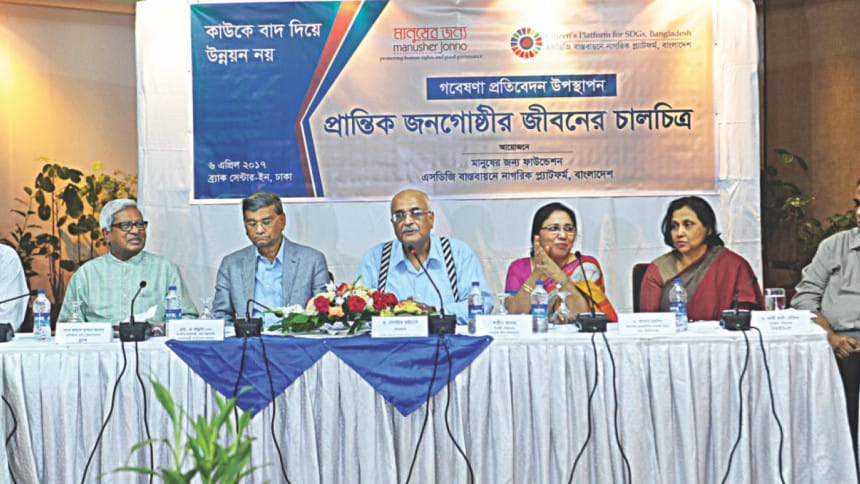Safety net schemes to get 15pc more allocation

Over Tk 52,000 crore will be allocated for the social safety net schemes in the next budget, up at least 15 percent from the current year.
The additional allocation would be used for the betterment of the marginalised people, said Shamsul Alam, member of the General Economic Division.
“Sustainable development is not possible if social inequality increases.”
At present, only 3.71 percent of the marginalised people have access to the social safety net programmes, while the rate stands at 50 percent for the rural people.
“The absence of social equality is a threat to democracy and also to the society,” he said at a discussion on a study on the state of the marginalised communities in Bangladesh at Brac Centre Inn.
The study is being conducted by Manusher Jonno Foundation under the initiative of Citizen's Platform for SDGs, Bangladesh.
Shahin Anam, executive director of Manusher Jonno Foundation, and Selim Ahmed Parvez, a researcher of the foundation, jointly presented the findings of the study.
Around 2,000 households from seven marginalised groups were surveyed. The study is still ongoing, with the complete findings to be presented in a month's time.
At present, there are about 3 crore marginalised people who lag behind others in terms of political, economical and social aspects, according to Anam.
Marginalisation is the by-product of political economy that is manifested by political domination and sustained structural inequalities, she said.
Presenting some of the key findings, Parvez said 89 percent of the surveyed people remain out of the social safety net, 93 percent do not get old-age allowances and 39 percent are absolutely landless.
Only 12 percent have access to jobs throughout the year, 90 percent have income generated from informal sectors and the unemployment rate is 7.89 percent.
The budgetary allocation for the marginalised people will be increased in the next budget, said MA Mannan, state minister for finance and planning.
“I would also request the finance minister to introduce allowances for the dalits,” he added.
The other speakers at the discussion said the lack of identity, insecurity, violent activities, absence of recognition and basic rights are the major barriers for the marginalised people in Bangladesh.
Access to education, health and basic human rights, creation of employment opportunities and internal and external migration, adequate policies and laws and increase of voice and representation in the decision-making process can improve the situation for the marginalised people, they added.
Debapriya Bhattacharya, convenor of the Citizen's Platform for SDGs, moderated the discussion.

 For all latest news, follow The Daily Star's Google News channel.
For all latest news, follow The Daily Star's Google News channel. 



Comments